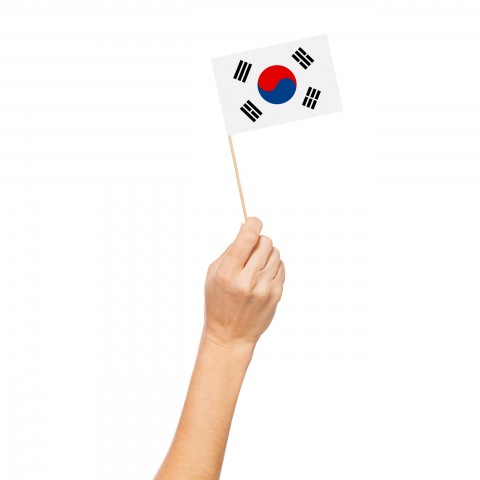
In this blog, we will introduce some of the most commonly used Korean words and phrases that you can use in the classroom.

Whether you are a language school student or a university student studying in Korea, it’s important to know key classroom related Korean words and phrases. If you master some of the essential Korean words and phrases, you will be able to maximize your Korean language learning experience. In this blog, we will introduce 30+ most common Korean phrases used in the classroom.
Table of Content
- Use Classroom Greetings in Korea: Formal and Informal
- Understand Instructions from Teachers in Korean
- Explain Absence from Class and Tardiness
- Talk about Favorite Subjects in Korean
- Check for School Supplies – Useful Korean Phrases and Words
- How KoreanClass101 Can Help
 Table of Contents
Table of Contents
- Use Classroom Greetings in Korea: Formal and Informal
- Understand Instructions from Teachers in Korean
- Explain Absence from Class and Tardiness
- Talk about Favorite Subjects in Korean
- Check for School Supplies – Useful Korean Phrases and Words
- How KoreanClass101 Can Help You with Learning Korean
1. Use Classroom Greetings in Korea: Formal and Informal
Since you are already learning Korean, you are aware that the Korean language has several levels of speech. You need to make sure to use the right honorific phrases and Korean vocabulary to speak with your teacher. You will need to speak formally to your teacher during the classroom. Your teacher or professor will speak to you formally or informally – it depends on them.
Also, to give you a little bit about Korean culture knowledge to make your Korean language learning experience more interesting, it is common for a stranger to ask how old you are. They ask this to determine which speech style to use, as it is based on your age.
If you are younger than the speaker, then he or she will speak to you casually, and you are expected to speak to him/her formally. Therefore don’t be offended when a person you meet for the first time asks your age; they are not interested in how old you are, they just want to find the right form of speech style. Also, depending on the level of honorific speech, people use different Korean vocabulary. For example, if you are speaking to an old person, let’s say about 60, you will say 생신 (saengsin). On the other hand, if you are speaking to a friend or younger person, you will say 생일 (saengil). Both Korean words have the same meaning “birthday.”
Here are some of the common Korean phrases used in the classroom. Let’s take a look.
| korean words and phrases – Learning formal and informal Korean language | |
| Korean and romaji | English translation |
| > Students | |
| 안녕하세요 선생님 .Annyeonghaseyo seonsaengnim. | “Hello teacher.” |
| 안녕하세요 교수님. Annyeonghaseyo gyosunim. | “Hello professor.” |
| > Teachers | |
| 잘가요 학생. Jalgayo hagsaeng. | “Goodbye, student.” |
Want to learn more about korean words and phrases – honorifics and the level of politeness used in Korea? Check out these pages:
2. Understand Instructions from Teachers in Korean
Here are some of the most commonly used korean words and phrases in the classroom. In Korea, it’s common to ask questions to your teacher after the class, because asking questions duing the class will slow down everyone and it is considered inappropriate. Therefore, If you have any questions, make sure to write down your questions and ask after the class. (Or you can ask via email or make a consultation with the teacher to ask questions in detail – this will allow you to maximise your learning Korean experience)
Here is the list of korean words and phrases that you can immediately use in the classroom.
| korean words and phrases – Learning Korean in the class | |
| Korean and romaji | English translation |
| > Teachers | |
| 교과서 X쪽 펴세요. Gyogwaseo Xjjog pyeoseyo. ※ x쪽: page x | “Please open your textbook to page X.” |
| 9페이지 펴세요. Gupeiji pyeoseyo. | “Please open your book to page 9.” |
| 책 덮으세요. Chaek deopeuseyo. | “Please close your book.” |
| 책 펴세요. Chaek pyeoseyo. ※ 교과서 (gyogwaseo), which means “text book” is also commonly used. | “Please close your book.” |
| 빨리 들어오세요. Ppali deureooseyo. | “Please come in quickly.” |
| 잘 들어 보세요. Jal deureo boseyo. | “Listen carefully.” |
| 조용히 하세요. Joyonghi haseyo. ※ 조용! (joyong!), which means “be quiet” is another word that is commonly used by teachers | “Please be quiet.” |
| 칠판 보세요. Chilpan boseyo. | “Look at the board” |
| 질문 있어요? Jilmun isseoyo? | “Do you have any questions?” |
| 질문 있는 사람? Jilmun inneun saram? | “Does anyone have a question?” |
| 읽어 보세요. Ilgeo boseyo. | “Please read it.” |
| > Students | |
| 네, 질문 있어요. Ne, jilmun isseoyo | “Yes, I have a question.” |
| 아니요, 질문 없어요. Aniyo, jilmun eopsseoyo ※ If a teacher asks to everyone in the class, you don’t necessarily need to say this phrase if you don’t have any questions. Teachers will take “silence” as “no”. | “No, I don’t have any questions” |
Want to practice how teachers and students talk to each other in Korean?
- ➜ Check out “Getting Help from the Teacher in South Korea” to learn additional korean words and phrases

3. Explain Absence from Class and Tardiness
When you feel sick, it’s better to rest at home and take care of yourself. If you decide to miss the class, make sure to email or let your teacher know in advance. Also, make sure to complete any homework assignments because if you don’t, you will lose points that count towards your grades. Make sure to ask for an extension if you cannot finish the homework on time for personal reasons.
Here is the list of Korean phrases that you will hear a lot during the classroom.
| korean words and phrases – Making excuses | |
| Korean and romaji | English translation |
| >Teacher | |
| 오늘 왜 늦게 왔어요? Oneul wae neutge wasseoyo? | “Why are you late today?” |
| 몸이 안좋아 보여요. 괜찮아요? Momi anjoa boyeoyo. Gwaenchanayo? | “You look unwell. Are you feeling okay?” |
| 오늘 숙제 왜 안해왔어요? Oneul sugje wae anhaewasseoyo? | “Why didn’t you do your homework today?” |
| >Students | |
| 몸이 안 좋아요. 오늘은 이만 가도 될까요? Momi an joayo. Oneureun iman gado doelkkayo? | “I don’t feel well. Can I be excused for the day?” |
| 버스가 안 와서 늦었어요. Beoseuga an waseo neujeosseoyo. | “I am late because the bus did not show up.” |
| 누가 제 책을 훔쳐 갔어요. Nuga je chaegeul humchyeo gasseoyo. | “Someone stole my books.” |
| 개가 숙제를 먹어 버렸어요. Gaega sukjereul meogeo beoryeosseoyo. | “My dog ate my homework.” |
| 깜빡하고 숙제를 안해왔어요. Kkamppakago sugjereul anhaewasseoyo. | “I forgot to do the homework” |
| 죄송합니다. 숙제를 안 해 왔습니다. Joesonghabnida. Sugjereul an hae wassseumnida. | “I am sorry, I couldn’t do my homework.” |
| 머리가 아파요. Meoriga apayo. | “I have a headache” |
| 몸이 좀 안좋아요. Momi jom anjoayo. | “Im not feeling well” |
Want to learn more about school in Korean?
- ➜ Check out “BACK TO SCHOOL” ebook by KoreanClass101.

4. Talk about Favorite Subjects in Korean
“What’s your favourite subject?” is a great way to initiate a conversation to a stranger and make friends. Here are some of the common Korean phrases that you can ask your friends or someone older than you, as well as the list of subjects in Korean. The name of the subject becomes more complicated if you choose specialized courses. Check out this page that lists all the other specialised subjects in Korean.
| korean words and phrases – Subjects | |
| Korean and romaji | English translation |
| (당신이) 제일 좋아하는 과목은 뭐예요? (dangsin-i) Jeil joahaneun gwamogeun mwoyeyo? | “What’s your favorite subject?” (Formal) |
| (네가) 제일 좋아하는 과목은 뭐야? (nega) Jeil joahaneun gwamogeun mwoya? | “What’s your favorite subject?” (Casual) |
| 내가 가장 좋아하는 과목은 미술이야. Naega gajang joahaneun gwamogeun misuriya. | “My favorite subject is art.” (Casual) |
| 제가 가장 좋아하는 과목은 미술이예요. Jega gajang joahaneun gwamogeun misuriyeyo. | “My favorite subject is art.” (Formal) |
| Korean vocabulary – Subjects in Korean | |
| 국영수사과 gugyeongsusagwa | Abbreviations for Korean, English, math, social studies, and science subjects. |
| 수학 suhak | “math” |
| 과학 gwahak | “science” |
| 국어 gugeo | “Korean language” |
| 영어 yeongeo | “English” |
| 역사 yeogsa | “history” |
| 음악 eumak | “music” |
| 체육 cheyuk | “PE” |
| 미술 misul | “art” |
| 사회 sahoe | “society” |
Want to learn how to say different subjects in Korean?
- ➜ Check out our free vocabulary list “School Subjects” by KoreanClass101

5. Check for School Supplies – Useful Korean Phrases and Words
Even if you prepare everything beforehands, sometimes you forget something such as a pencil. If you want to ask someone to lend you utensils, here are some of the useful Korean phrases and words you can use in the classroom.
| korean language learning – School Supplies | |
| Korean and romaji | English translation |
| 펜 좀 빌려주시겠어요? Pen jom billyeojushigesseoyo? | “May I borrow your/a pencil” (formal) |
| 펜 좀 빌려줄래? Pen jom billyeojullae? | “Can I borrow your/a pencil” (casual) |
| 여기 있어요. Yeogi isseoyo. | “Here you are” (formal) |
| 여기 있어. Yeogi isseo. | “Here you are” (casual) |
| 미안해요, 펜이 없어요. Mianhaeyo, penieopsseoyo. | “I’m sorry. I don’t have a pen” (formal) |
| 미안해, 나 펜이 없어 Mianhae, na peni eopsseo. | “I’m sorry. I don’t have a pen” (casual) |
| List of Korean vocabulary (stationary) | |
| 연필 yeonpil | “pencil” |
| 연필깎이 Yeonpilkkakki | “Pencil sharpener” |
| 지우개 jiugae | “eraser” |
| 필통 piltong | “Pencil case” |
| 자 ja | “ruler” |
| 가위 gawi | “scissors” |
| 풀 pul | “glue stick” |
| 가방 gabang | “backpack” |
| 교과서 gyogwaseo | “textbook” |
| 공책 gongchaek | “notebook” |
| 문제집 munjejib | “workbook” |
Check out these page for more stationary related Korean vocabulary.

6. How KoreanClass101 Can Help You with Learning Korean
In this blog article, you have learned some of the most common Korean words and phrases used in the classroom, for students and for teachers. We also introduced some of the Korean culture related to the level of politeness to use depending on a person’s age and classroom rules that may be different to your country. You don’t need to memorize all the Korean culture and social rules, but learning Korean culture will allow your Korean language learning experience to the fullest.
KoreanClass101 has plenty of resources for you to learn various Korean words and phrases and we believe that you will have the best Korean language learning experience. Check out our KoreanClass101 Youtube channel and our website! The free Korean vocabulary lists are also a great way to improve your Korean vocabulary skills. You can also practice pronunciation as each Korean vocabulary page has audio. Create a lifetime free account today and access our free Korean words and phrases materials today.
If you have any questions, feel free to leave a comment below!









